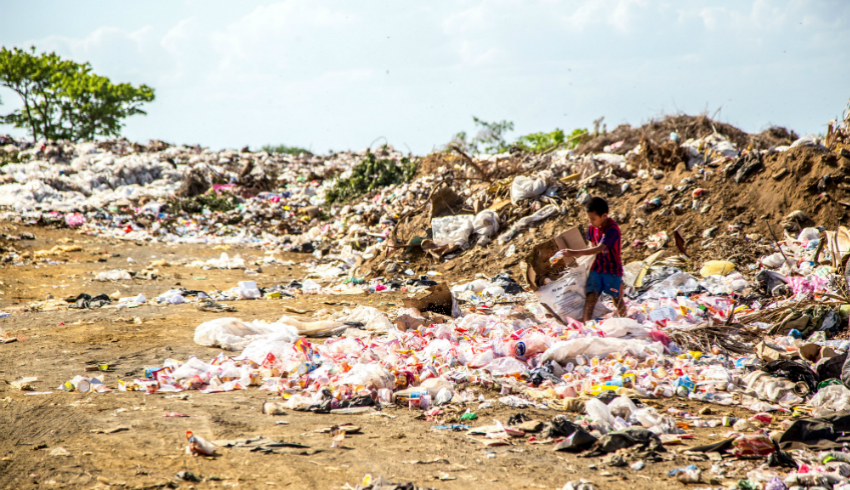Legal Spotlight

With single-use plastics being scrutinised and banned, the UK appears to have acknowledged its plastic pollution problem. But it’s a global problem as well as a national one. Elizabeth Kirk, professor of international environmental law at Nottingham Law School, discusses how it could be solved.
From the deepest ocean to highest mountains we can’t escape plastics pollution. Dramatic images show plastic islands clogging our waterways, but this is only a part of the picture. Micro-plastics are now found in everything from sugar to drinking water. How did we get to this point?
The short answer is that, while there are some treaties in place which could help prevent or reduce plastics pollution, it has taken a while to come to the realisation that plastics are problematic. So although the United Nations Convention on the Law of the Sea. provides that States are to prevent, reduce and control pollution of the marine environment from land-based activities, it is not until very recently that the use of plastics has been deemed as a cause of pollution.
Now that plastic pollution is public knowledge, governments and the international community are rushing to take action. Countries are taking measures to tackle some single use plastics such as drinking straws and plastic bags. Kenya, for example, adopted legislation banning single-use plastic bags. The international community is also strengthening its laws regarding the import and export of plastic waste. These moves are also encouraging some states to send contaminated plastic waste back to the countries of origin for disposal.
While this news is positive, billions of dollars are still being invested in new plastics refineries. Given that plastics are used in so many products, from plastic bottles and cutlery, to clothes and car tyres and medical equipment, we cannot simply stop their use overnight. So what can we do?
We could drastically improve rates of recycling; at present only around 11% of plastic is recycled globally. For recycling to increase to the point of reducing pollution, it would require significant investment in facilities and in public education. Countries would have to share expertise on the most effective ways to recycle plastics; such as using plastic-eating bacteria, or other methods. They would also have to ensure that the collection and recycling facilities could withstand the increasing number of severe weather events associated with climate change. However, investing in street reception points resilient to flooding or high winds, could be challenging and expensive.
Further bans on certain plastic products could be introduced. However, a ban on imports of a plastic item by a single state may be challenged by other countries under World Trade Organisation rules. The UK’s ban on plastic straws could come under such scrutiny. Countries who produce goods for their home country and for export could face similar challenges: if they are no longer able to use plastics, they have the choice of switching all production, for example from plastic to paper straws, or maintaining two types of production. Maintaining two production streams is expensive, but changing the whole product may cause some markets to dry up.
A solution may lie in a global treaty under which all states agree which items should be banned. Such cooperation would also help states to share knowledge on the best recycling practices. It’s something that countries are already doing: through reports to a governing body, knowledge about how to meet some other treaty obligations. A similar approach could be taken in a plastics treaty.
Further, a global treaty would encourage global collaboration to clean up existing pollution. At present, any action to clean up existing plastic pollution is dependent on individual actors like Boyan Slat. A clean-up fund could be established under a new treaty to address these “legacy” plastics. Importers and exporters of plastics could pay into the fund, in the same way that importers and exporters of oil pay into a Fund to address harm from oil spills. Alternatively, a tax could be collected on oil-based plastics products.
The problem of plastics is a complex one, and at the moment, a piecemeal approach is being taken. Such complexity needs a coherent solution—for example, a global treaty—to unify the approach.
Elizabeth Kirk is Professor of International Environmental Law at Nottingham Law School, part of Nottingham Trent University
Academy tools to help you get a job
-

Free Watson Glaser Practice Test
Understand the test format, compare your performance with others, and boost your critical thinking skills.
